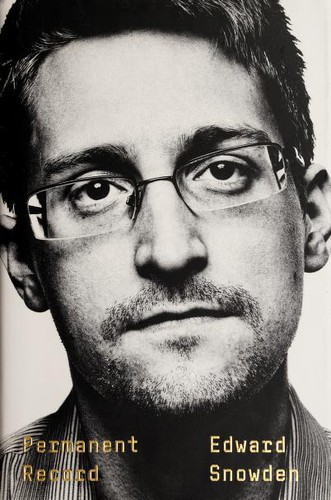Nerywood reviewed Permanent record by Edward Snowden
Review of 'Permanent record' on 'Goodreads'
4 stars
Warning: By reading this book and this review you are probably put on some sort of list that the NSA has (and may have shared with it's allies). I'm not kidding, Ed even mentions this in the book.
This is an autobiography written by Ed, while he may have had a ghost writer help him with some thing it's still in Ed's style.
When I started to read this book, I found the pacing slow. So slow I was considering stopping, but I'm glad I finished it (even if it did take me a while to finish it).
If you kept up with the articles and movies that came out featuring Ed (like Citizenfour, or Snowden) then you most likely already know a good chuck of his story but it's still nice to read it from his point of view and there are many things that aren't covered elsewhere.
It's not a book everyone will enjoy, if you are a fan of Ed or what he has done then consider reading the book. If not then you aren't missing really important.
There are some amazing sentences in this book I want to share (there may be a few spoilers if you haven't heard everything about Ed's life)
"Life only scrolls in one direction, which is the direction of time, and no matter how far we might manage to go, that invisible wall will always be just behind us, cutting us off from the past, compelling us on into the unknown."
"My schoolwork was done on paper with pencils and erasers, not on networked tablets that logged my keystrokes."
"In the absolute worst case, I’d sputter, and my classmates would think I was stupid. Let them. You should always let people underestimate you."
"Technology doesn’t have a Hippocratic oath. So many decisions that have been made by technologists in academia, industry, the military, and government since at least the Industrial Revolution have been made on the basis of “can we,” not “should we.” And the intention driving a technology’s invention rarely, if ever, limits its application and use."
"You might choose to give it up out of convenience, or under the popular pretext that privacy is only required by those who have something to hide. But saying that you don’t need or want privacy because you have nothing to hide is to assume that no one should have, or could have, to hide anything—including their immigration status, unemployment history, financial history, and health records. You’re assuming that no one, including yourself, might object to revealing to anyone information about their religious beliefs, political affiliations, and sexual activities, as casually as some choose to reveal their movie and music tastes and reading preferences."
"our clouds, computers, and phones have become our homes, just as personal and intimate as our actual houses nowadays. If you don’t agree, then answer me this: Would you rather let your coworkers hang out at your home alone for an hour, or let them spend even just ten minutes alone with your unlocked phone?"
"I was carrying one of the big old hulks back to my desk when I passed one of the IT directors, who stopped me and asked me what I needed it for—he’d been a major proponent of getting rid of them. “Stealing secrets,” I answered, and we laughed."
"I’m going to refrain from publishing how exactly I went about my own writing—my own copying and encryption—so that the NSA will still be standing tomorrow."
"Although the deleted file disappears from view, it is rarely gone."
"it was like they were just trying to show me that they already knew everything about me. Of course they did. That was Ed’s point. The gov always knows everything."
"That Volcano Ed was going to destroy everything? But I remember the guide at Kilauea saying that volcanoes are only destructive in the short term. In the long term, they move the world."
"and play games I have to pirate because I can no longer use credit cards."
"I used to worry about the bus and metro, but nowadays everybody’s too busy staring at their phones to give me a second glance. If I take a cab, I’ll have it pick me up at a bus or metro stop a few blocks away from where I live and drop me off at an address a few blocks away from where I’m going."

